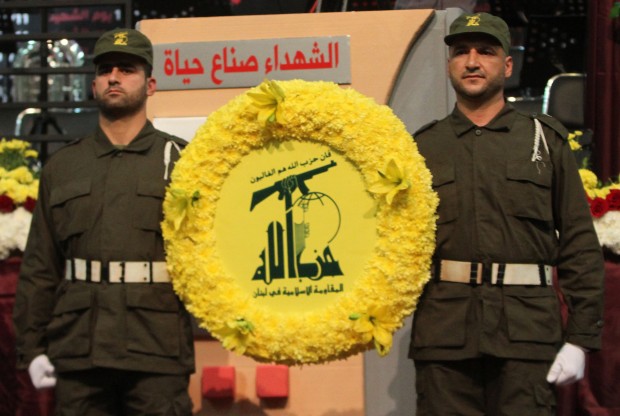If an observer were to take a look at our region, he would find that we are face to face with mounting evidence of the “Shi’a Al-Qaeda”—otherwise known as Hezbollah—in Syria, Yemen, and Iraq, as well as in the Gulf States, most notably Bahrain, and even in Libya and North Africa. Iran’s adherent groups are acting along the same lines as the Sunni Al-Qaeda; seeking to cement a presence in the region’s hotspots and apply the Hezbollah model there.
The Shi’a Al-Qaeda is drawing its inspiration from Hezbollah’s experience in Lebanon and applying it to Yemen, via the Houthis, with the aim of creating a front against Saudi Arabia and, of course, the entire Gulf region. Similarly, in Iraq, the Shi’a Asaib Ahl Al-Haq—an adherent of Iran that has carried out killings and bloodshed—has entered the political arena with the aim of undermining the Sadrist movement and consolidating Nuri Al-Maliki’s stance. This is reminiscent of Hezbollah’s endeavors to hijack the Shiite leadership in Lebanon from the Amal Movement there. In Bahrain, armed terrorist militias are being formed while the Shi’a Wefaq movement continues to work under a civil guise, seeking to penetrate Western institutions along the lines of Hezbollah by using an armed wing and a political one. It is ironic that this is all happening at a time when the West is currently considering imposing sanctions on Hezbollah, in both its military and political forms.
In Syria, the situation is even uglier. Now we see the Free Syrian Army (FSA) giving an ultimatum to Hezbollah, threatening to target its sites. Hezbollah, alongside the Iranian Quds Force, are seeking to quell the Syrian popular revolution and protect Bashar Al-Assad, or at least ensure that Hezbollah and Iran have a foothold in the post-Assad era. In order for Hezbollah to accomplish this objective, they are trying to form an affiliate party there. In a similar manner to Hezbollah, this party will later on base its legitimacy on the premise of targeting Israel from the Golan Heights, and thus any affront against it would be akin to defending Israel. Furthermore, this all is happening under Iranian auspices.
In spite of the crimes of his group, and up until around 2004, Osama Bin Laden was known as “Sheikh”. Similarly, in the Shiite case, some continue to refer to Hassan Nasrallah as “Sayyid” (an honorific title in Shi’a Islam). As for Iran’s agents who adhere to Hezbollah, they are not only infiltrating the Arab media or Arab parliaments, but also Western research centers that continue to promote them in a naïve manner, similar to how Al-Jazeera promoted Al-Qaeda in the late 1990s.
What is most frustrating about the story of the Shi’a Al-Qaeda—Hezbollah—in our region is not the Western ignorance of it, but rather the silence of rational Shiites, even as Iran trades on their issues and causes. It is odd for some to argue, for example, that Israel is seeking to provoke sectarian strife in the region, when the question that should be raised is: Why is Iran allowed to exploit the region’s Shiites to accomplish Israel’s objectives? Aren’t there any rational Shiites willing to challenge this, particularly considering the unforgivable crimes Hezbollah and Iran are committing in Syria?
Therefore, it is important to heed the warnings about the spread of the Shi’a Al-Qaeda in our region, for it is no less dangerous than its Sunni counterpart.
